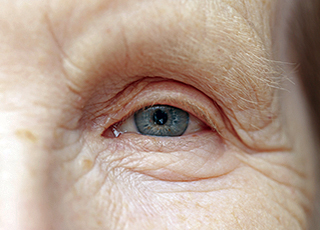
Injectable drugs introduced in the last decade have proven effective in preserving vision and preventing nursing home admissions among those with age-related wet macular degeneration, according to recently published research.
The drugs include ranibizumab (Lucentis) and bevacizumab (Avastin). Both inhibit vascular endothelial growth factors, and so are known as anti-VEGF medications.
Investigators at Duke University looked at Medicare claims data from 1994 to 2011 to determine the effectiveness of anti-VEGFs in preventing blindness and long-term care admissions. Compared with earlier treatments, anti-VEGFs reduced vision loss by more than 40% and slowed the onset of severe vision loss and blindness by more than 45%, the researchers determined.
Within two years of receiving anti-VEFG injections, beneficiaries were 19% less likely to be in a nursing home, the researchers found.
The success of anti-VEGFs has changed the mindset of clinicians, a physician who was not involved with the study told Reuters Health. Previously, dry age-related macular degeneration was considered a better diagnosis than wet, but that conventional wisdom is being turned on its head by the new drugs, said Michael Stewart, M.D., head of ophthalmology at the Mayo Clinic in Jacksonville, FL.
The Food and Drug Administration has approved Lucentis, but not Avastin, to treat age-related wet macular degeneration. However, Avastin is less expensive and has been used off-label to treat the eye condition, which progresses more quickly than the “dry” variation and leads to blindness. Previous studies have raised concerns that Avastin use actually may increase the risk of blindness.
Although many people dread getting an injection in the eye, most tolerate the procedure well, Stewart said.
The Duke study was led by Frank A. Sloan, Ph.D. Findings appear in JAMA Ophthalmology.




